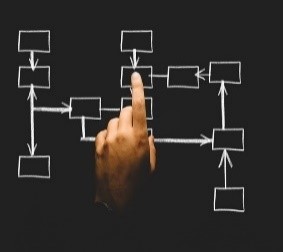
Using Concept Maps in Law Schools to Foster Meaningful Learning: Evidence from a Pilot Study
Abstract
Despite its many applications in various higher education settings, concept mapping is not used for teaching predominantly theoretical subjects like Law. Given the peculiarities of learning legal subjects, this article discusses the benefits of using concept maps as a core component of an undergraduate curriculum in Law. Specifically, it presents evidence from a pilot study aimed at assessing the impact of concept mapping as a tool for enhancing deep learning on students enrolled on the compulsory Constitutional and Administrative Law module. An argument is made that utilising concept maps as an integral part of small group teaching activities may be effective in helping students shift the balance from predominantly rote learning to predominantly meaningful learning.
Keywords
Full Text:
PDFReferences
Arnold, L. (2015). Action Research for Higher Education Practitioners: A Practical Guide. Retrieved from: View Item
Ausubel, D.P. (1968). Educational Psychology: A Cognitive View. New York Holt, Rinehart, & Winston. View Item
Bledsoe, K.E., & Flick, L., (2012). Concept Development and Meaningful Learning among Electrical Engineering Students Engaged in a Problem-Based Laboratory Experience. Journal of Science Education and Technology, 21 (2), 226-236. https://doi.org/10.1007/s10956-011-9303-6
Bone, A., (2009). The Twenty- First Century Law Student. The Law Teacher, 43 (3), 222-244. https://doi.org/10.1080/03069400903332496
Conradty, C., & Bogner, F.X., (2012). Knowledge Presented in Concept Maps: Correlations with Conventional Cognitive Knowledge Tests. Educational Studies, 38 (3), 341, 351 https://doi.org/10.1080/03055698.2011.643100
Davies, M, (2011). Concept Mapping, Mind Mapping and Argument Mapping: What Are the Differences and Do They Matter?. Higher Education, 62 (3), 279-292
https://doi.org/10.1007/s10734-010-9387-6
Entwistle, N.J., & Peterson, E.R. (2004). Conceptions of Learning and Knowledge in Higher Education: Relationships with Study Behaviour and Influences of Learning Environments. International Journal of Educational Research, 41 (6), 407 https://doi.org/10.1016/j.ijer.2005.08.009
Gerstner, S., & Bogner, F.X. (2009). Concept Map Structure, Gender and Teaching Methods: An Investigation of Students’ Science Learning, Educational Research, 51 (4), 425-436 https://doi.org/10.1080/00131880903354758
Hay D., Kinchin I. and Lygo-Baker S., (2008), Making Learning Visible: The Role of Concept Mapping in Higher Education. Studies in Higher Education, 33(3), 295- 306 https://doi.org/10.1080/03075070802049251
Hay, D.B., Wells, H., & Kinchin, I.M. (2008). Quantitative and Qualitative Measures of Student Learning at University Level, Higher Education, 56 (2), 221-238. https://doi.org/10.1007/s10734-007-9099-8
Jacobs-Lawson, J.M., & Hershey, D.A. (2002). Concept Maps as an Assessment Tool in Psychology Courses”. Teaching of Psychology, 29 (1), 25- 26 https://doi.org/10.1207/S15328023TOP2901_06
Jarvis, P. (1992). Paradoxes of Learning: On Becoming an Individual in Society. San Francisco: Jossey- Bass. View Item
Kinchin, I. M., Cabot, L. B. and Hay, D. B.(2008) 'Visualising expertise: towards an authentic pedagogy for higher education', Teaching in Higher Education, 13: 3, 315 — 326. https://doi.org/10.1080/13562510802045345
Kinchin, M., Lygo-Baker, S., & Hay, D.B. (2008). Universities as centres of non-learning, Studies in Higher Education, 33 (1), 89-96. https://doi.org/10.1080/03075070701794858
Kolb, D.A., & Fry, R.E. (1975). Toward an applied theory of experiential learning. In C. Cooper (ed.), Theories of Group Process, 33-58, London: Wiley. GS Search
Kolb, D.A., & Fry, R.E.; Yen, J., Lee, C., & Chen, I., (2012). The effects of Image-Based Concept Mapping on the Learning Outcomes and Cognitive Processes of Mobile Learners. British Journal of Educational Technology, 43 (2), 307-318. https://doi.org/10.1111/j.1467- 8535.2011.01189.x
Ku, D.T., Shih, J., & Hung, S., (2014). The Integration of Concept Mapping in a Dynamic Assessment Model for Teaching and Learning Accounting. Educational Technology & Society, 17 (1), 141- 151. GS Search
Lawless, C., Smee, P., & O’Shea, T. (1998). Using Concept Sorting and Concept Mapping in Business and Public Administration, and in Education: An Overview. Educational Research, 40 (2), 219- 235. https://doi.org/10.1080/0013188980400209
Lim, K.Y., Lee, H.W., & Grabowski, B. (2009). Does Concept-Mapping Strategy Work for Everyone? The Levels of Generativity and Learners’ Self-Regulated Learning Skills. British Journal of Educational Technology, 40 (4), 606-608. https://doi.org/10.1111/j.1467-8535.2008.00872.x
Masika, R., & Jones, J. (2016). Building Student Belonging and Engagement: Insights into Higher Education Students’ Experiences of Participating and Learning Together. Teaching in Higher Education, 21 (2), 138-143. https://doi.org/10.1080/13562517.2015.1122585
Novak, J.D., (1990). Concept Maps and Vee Diagrams: Two Metacognitive Tools to Facilitate Meaningful Learning. Instructional Science 19 (1), 29-52. https://doi.org/10.1007/BF00377984
Novak, J.D., (2002). Meaningful Learning: The Essential Factor for Conceptual Change in Limited or Inappropriate Propositional Hierarchies Leading to Empowerment of Learners. Science Education, 86 (4), 31- 557 https://doi.org/10.1002/sce.10032
Novak, J.D., (2010) Learning, Creating, and Using Knowledge: Concept Maps as Facilitative Tools in Schools and Corporations. Routledge. GS Search
Rendas, A.B., Fonseca, M., & Rosado Pinto, P. (2006). Toward Meaningful Learning in Undergraduate Medical Education Using Concept Maps in a PBL Physiopathology Course. Advances in Physiology Education, 30 (1). 23-29. https://doi.org/10.1152/advan.00036.2005
Surapaneni, K.M., & Tekian, A., (2013). Concept Mapping Enhances Learning of Biochemistry. Medical Education Online, 18 (1), 4. http://doi.org/10.3402/meo.v18i0.20157
DOI: https://doi.org/10.29311/jlthe.v1i2.2748
Refbacks
- There are currently no refbacks.
Copyright (c) 2018 Rossana Deplano

This work is licensed under a Creative Commons Attribution 4.0 International License.



